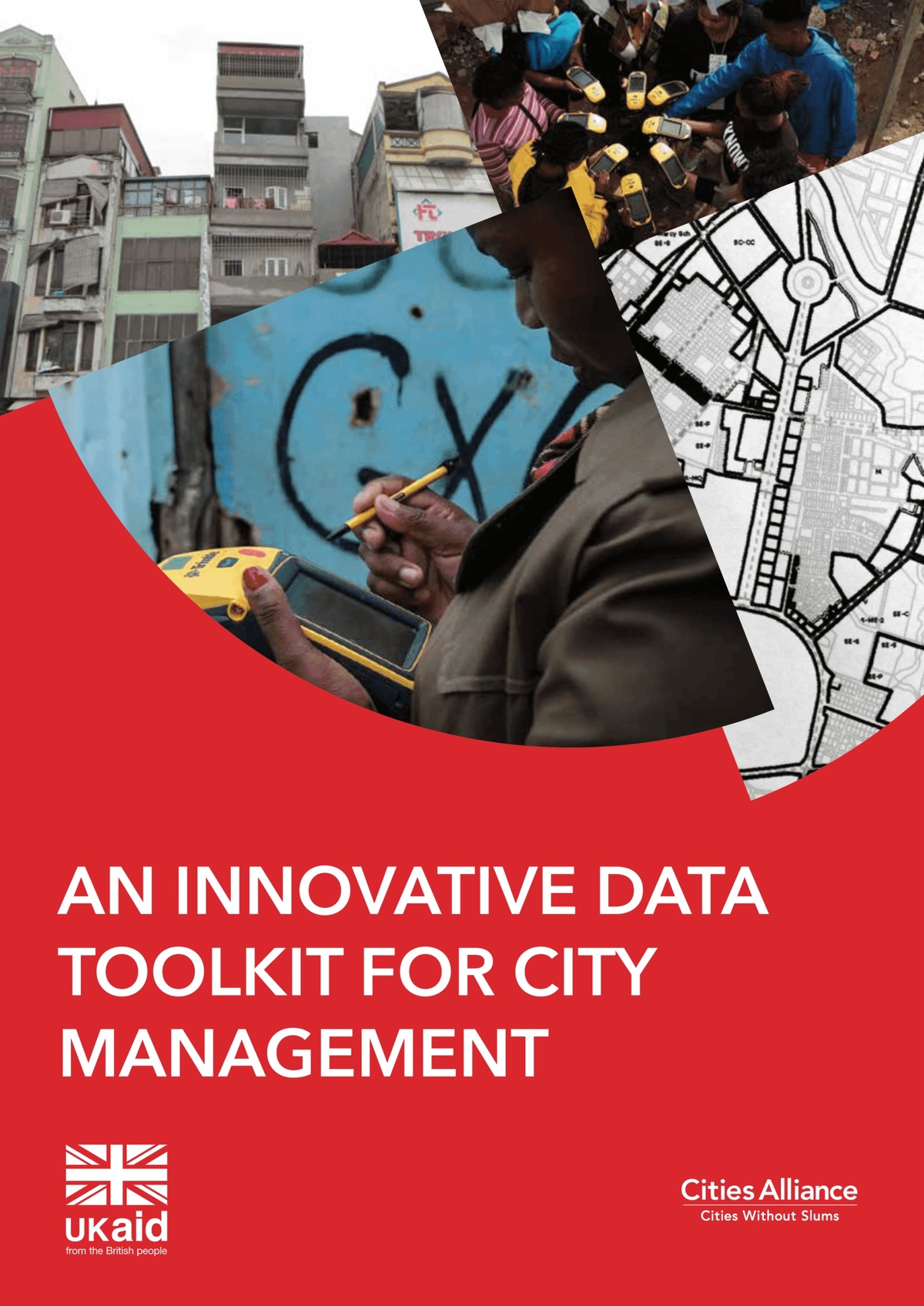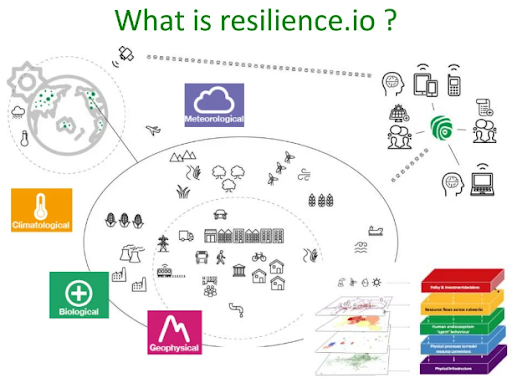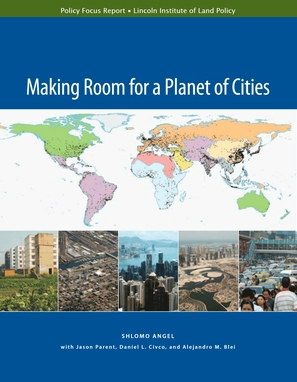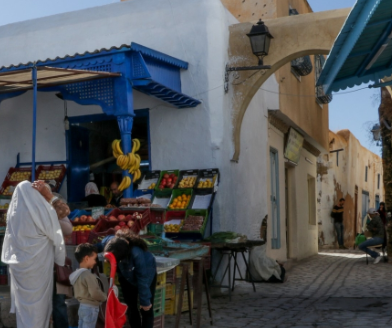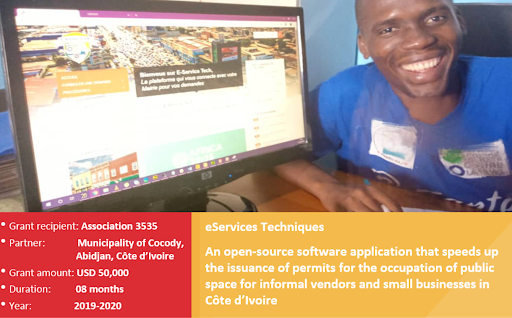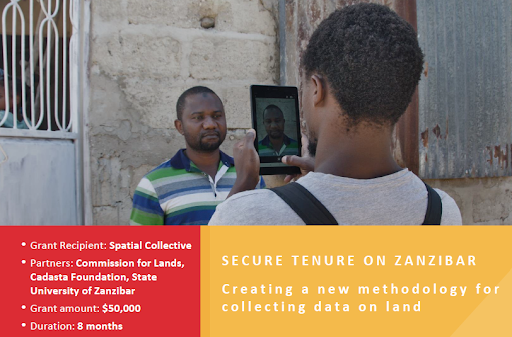Cities face complex challenges that require management and planning. Digital technology can support city planners and managers by providing them with tools for data gathering that help them make informed decisions and plans, as well as institutionalising systems that make governance more efficient and transparent.
Cities Alliance tested digital solutions to improve city-data ecosystems through municipal data management systems and capacities, investment decision-making support tools, e-governance and citizen feedback, digitalizing public services, modernizing land governance and tenure, information and communications technology (ICT) systems for mapping basic infrastructure deficits, and digital mapping and enumeration of informal settlements.
It is not just the community who need to trust data; but governments need to trust data too. It is not about saying my data or your data, but to provide access for everybody for this data.
- Pratima Joshi, Executive Director at Shelter Associates
Improving City Governance through City Management and Mapping
Harnessing Digitalisation for Inclusion
Improving City-wide Service Provision
Data Management Toolkit – Future Cities Africa
The Social Tenure Domain Model (STDM) is a land information management system developed by UN-Habitat through the Global Land Tool Network (GLTN) partners. It integrates formal, informal, and customary land rights – reflecting the realities on the ground in many poor communities. Unlike previous enumeration tools that related a person’s name and address to land, STDM can relate personal identifiers, such as fingerprints, to a coordinate point inside a plot of land or dwelling. The main benefits of STDM are that it is flexible, affordable, and easy to share. Communities can use the system to easily collect accurate, reliable information about themselves, analyze the data, and generate quick reports. They can also easily update the information as needed.
STDM was first piloted and replicated in Uganda with support from Cities Alliance. Years later, and given the success of the tool, Cities Alliance has also supported upscaling and institutionalization efforts in Kenya. Read more here and here.
Open-source decision-making platform (Resilience.io)
Enhanced digitalisation was central to the Cities Alliance Future Cities Africa (FCA) Programme and aimed to strengthen the capacities of cities to plan and act in response to shocks.
Under the FCA, Cities Alliance supported the development of the resilience.io platform. This highly innovative new planning and investment decision-making support tool was developed by The Ecological Sequestration Trust (TEST). This open-source platform was developed to enable decision-makers and key stakeholders to make better citywide policies, plans and interventions readily available for deployment in African cities.
The first prototype platform was successfully demonstrated in the Water, Sanitation and Hygiene (WASH) sector in Greater Accra Metropolitan Area. Read more here.
Land Expansion Planning 2011
The Land Expansion Planning methodology is a simple and cost-effective approach to planning for orderly urban expansion. It relies heavily on the use of satellite imagery, initially to determine and forecast population growth rates. It also utilises satellite imagery to prepare a grid of arterial roads in the urban periphery before it is developed and secures the rights of ways for the roads before urban development happens. The arterial road grids are designed to carry trunk infrastructure, including water mains, which can make it both cheaper and easier to provide basic services in adjacent neighbourhoods, whether formal or informal.
This methodology has been successfully applied in Ethiopia where it opened up new land for planned urban development, created room for tens of thousands of new urban inhabitants and provided accessible land for new industry and commerce, creating jobs.
Urban expansion planning is currently a key methodology of the Cities and Migration Programme. Read more here and here.
Espace Citoyen, Tunisia
The Tunisia Country Programme, through a partnership with the National Federation of Tunisian Municipalities (FNCT), is co-financing an "Espace citoyen" which digitalises some administrative services and facilitates online access to these services for citizens. This project aims to support the decentralisation agenda and improve transparency and citizen engagement in local affairs.
As a result, 29 municipalities initiated youth action plans with activities that include digital applications, youth internet radio stations, and citizen labs in collaboration with local youth groups. Women's networks were also established in five cities where 150 women participated in encouraging other women to take part in municipal elections. The project also worked with FNCT and the Government of Tunisia’s e-governance department in 12 cities and municipalities, and opened 15 citizen's offices that could serve up to 808,000 people. Read more here.
Building Government Digital Capacities, Liberia
Implemented between 2015 and 2018 with funding support from Cities Alliance, the “Imagine Monrovia” project used innovative data collection methods to improve local government decision-making and development planning.
In a context where municipal staff had little capacity to work with data and new technologies, the introduction of new equipment and technical skills was urgent. The project provided GIS training to improve municipal data management capacities, local government decision making and development planning.
In addition, the project succeeded in collecting new data and compiling previously fragmented information on the city’s businesses and land use. While the project’s implementation was delayed due to changes in the city administration, it is expected that the local government will build on these new databases to improve decision-making on land use, revenue collection and the delivery of public services and goods. Read more here.
E-Government, Bolivia
Web platform and SMS service for citizen feedback to the municipality on public services and infrastructures in upgraded neighbourhoods.
With funding support from Cities Alliance, the Municipality of La Paz and the World Bank developed “Barrio Digital (Digital Neighbourhood)”, a web-based platform designed to allow residents of the upgraded neighbourhoods to send real-time feedback, suggestions and assistance requests, both online and by SMS, on municipal services.
Barrio Digital was piloted in four of the 100 upgraded neighbourhoods in the municipality of La Paz, and due to its success, it will be scaled to include other neighbourhoods.
Digitising public services for a more accessible public space, Côte d'Ivoire
Municipalities oversee the issuance of permits to informal vendors and small businesses for the occupation of public space in Côte d’Ivoire. The permit process is slow and can take up to 8 weeks. Without a permit, occupying public spaces is illegal, and users risk eviction at any moment. As a result, vendors and businesses may refrain from investing in improvements to their market stalls.
The Cities Alliance-funded project eServices Technique created an open-source web application, free for municipalities in Côte d’Ivoire that want to digitise processes for obtaining and renewing the issuance of permits for the occupation of public space for informal vendors and small businesses. With this tool, the processing time of the request has significantly decreased, on average, from 8 weeks to 22 working days. Read more here.
Modernising land governance, Democratic Republic of the Congo
With support from Cities Alliance, the project “Drones for Land Clarification and the Empowerment of Women" established a space for participatory multi-stakeholder dialogue, enabling various stakeholders concerned by land issues to respond to land governance challenges and to propose joint solutions to the authorities. This has been followed by the integration of new geographic information technologies including civilian drones, GIS and web mapping tools into DRC’s land management system. This has helped modernise the system and formalise land and property rights by facilitating the granting of formal land titles to vulnerable communities. To achieve this, IRDAC SARL helped the land administration digitise the land registry. This required prior technical training of young people from local households and land agents. Finally, knowledge was shared on the benefits of land titles in inclusive development. Women received guidance and support on the potential for using their secure land titles to obtain microcredit to launch future income-generating activities. Read more here.
Creating a new methodology for land data collection in Zanzibar, Tanzania
Cities Alliance-funded project “Secure Tenure in Zanzibar” aimed to develop a data collection method that used ubiquitous digital technology to enable the Revolutionary Government of Zanzibar (RGoZ) to reach the desired target of adjudicating 50% of land ownership claims in the coming years. Further, the project enhanced the local capacity and institutional development necessary to support the design and implementation of evidence-driven urban property rights interventions.
The pilot project demonstrated the potential of modern technologies in securing land rights. The time required to collect data on individual properties and issue certificates has significantly declined. The solution proposed is being sustained by local actors and has a great potential for institutionalisation. After the funding from Cities Alliance, and with data collected through the project, the Zanzibar Commission for Lands has prepared Certificates of Occupancy which are now pending signature by the Ministry of Lands, Energy, and Water for the subsequent issuance to the owners. Read more here.


